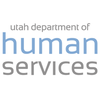Job Description
Job Title : Wetlands Ecologist (Program Specialist I)
Job Description :
The Utah Geological Survey is hiring a Wetland Ecologist (formal job title of Program Specialist I) to assist with wetland mapping, data analysis, reporting, and other wetland assessment projects.
They would join the Groundwater and Wetlands Program, a congenial team of scientists conducting multidisciplinary studies.
We provide unbiased, rigorous scientific data and interpretations that are used by local, state, and federal officials and the Public to make informed natural resource management decisions.
As a team, we have a range of scientific backgrounds and interests, are intellectually curious and enthusiastic, and support professional development and growth.
We seek a person with a background in ecology, environmental sciences, or watershed sciences, experience with GIS and spatial analysis, and familiarity with ESRI products like ArcPro, Survey123, and ExperienceBuilder as well as familiarity with programming languages like R, Python, or JavaScript.
Ideal candidates would be detail-oriented, possess strong writing skills, and demonstrate effective problem-solving and organization. Daily tasks could include :
1) mapping wetlands for the National Wetland Inventory,
2) analyzing spatial data or field data to understand wetland conditions or trends
3) producing reports and outreach materials to communicate project results,
4) collecting field data for wetland assessment projects, and
5) collaborating with colleagues on other groundwater or wetland research projects as needed.
Principal Duties :
As the Wetlands Ecologist you will :
- Use photo interpretation techniques to identify, classify, and map wetlands in GIS
- Review mapping data from colleagues and participate in mapping group discussions
- Help produce written reports and other outreach material such as presentations or ExperienceBuilder apps to communicate project results
- Apply existing Python or R workflows to process data, conduct statistical analyses, or automate workflows
- Assist with fieldwork on wetland mapping and assessment projects
- Collaborate with colleagues on other wetland-related research projects.
The Ideal Candidate :
Ideal candidates will have foundational knowledge of wetland ecology and watershed sciences, but also demonstrate broad interest in Utah’s natural resources and furthering the Utah Geological Survey’s mission to provide timely and accurate scientific information.
The ideal candidate for the Wetland Ecologist position will demonstrate the following qualities :
- A Bachelor's degree (B.S. or B.A.) or higher in ecology, watershed science, biology, geography, or related field, or equivalent professional experience in wetland ecology.
- Proficiency in Geographic Information System (GIS) software to digitize features and conduct spatial analyses
- Familiarity with wetland classification schemes including Cowardin, hydrogeomorphic, and LLWW (landscape position, landform, water flow path, and waterbody type).
- Attention to detail, ability to manage complex datasets, effective problem-solving to improve existing workflows
- Experience using R, Python, or JavaScript to process data and automate simple GIS or data management tasks
- Experience conducting remote sensing analyses with satellite imagery
- Experience producing both technical reports and outreach material for the general public
- Experience with wetland sampling methods and a willingness to work in various field conditions.
- Strong interpersonal skills and the ability to collaborate effectively with colleagues, government agencies, and the public.
Why join?
The Utah Geological Survey’s Groundwater and Wetlands Program staff is highly motivated, conducts rigorous multidisciplinary applied science throughout Utah, and features a friendly, supportive, and enthusiastic working environment.
We are fully engaged in providing data and analyses to help address Utah's critical wetlands and groundwater issues. Projects are multidisciplinary and require field work, data analyses, and report writing.
Working at UGS provides an unmatched opportunity to conduct applied wetland research while enjoying a work-life balance that affords ample time for family, cultural, and outdoor activities.
The State of Utah provides generous benefits and retirement packages, as well as ample vacation and sick leave.
Below is a summary of the benefits offered to state employees : Health Insurance - Public Employee Health Program (PEHP) :
- 3 medical plan options. Choose a Traditional or High Deductible Health Plan.
- There is an Opt-Out Cash Benefit option for those who have other medical insurance coverage.
- 5 dental plan options, with an Opt-Out Cash Benefit option for those who have other dental insurance coverage.
- 4 vision plan options under EyeMed or OptiCare
Retirement- Utah Retirement Systems (URS) :
- Employees who have any service credit with an employer covered by the Utah Retirement Systems before 7 / 1 / 2011 are in the Tier I Public Employees System.
- Employees hired on or after 7 / 1 / 2011 and who have never been in the URS retirement system have two options for retirement in the Tier II System.
- Tier 2 Hybrid Retirement System. Employer contributes an amount equal to 10% of your salary between both plans (pension and 401(k))
- Tier 2 Defined Contribution Plan. Employer contributes an amount equal to 10% of your salary to a 401(k) plan only.
- Employer contributions to your 401(k) are vested after four years.
Paid Time Off :
- Annual leave and sick leave are accrued at 4 hours per pay period each (4 hours annual, 4 hours sick).
- Annual leave amounts increase with years of service.
- We have 12 paid holidays.
The Division
Click here for more information about the Utah Geological Survey
Qualifications
Knowledge, skills, and abilities :
MINIMUM REQUIREMENTS -
- B.S. / B.A. or higher in ecology, watershed science, biology, geography, related field, or directly related work experience equivalent
- Coursework and / or working experience in Geographic Information Systems (GIS)
- Experience writing technical scientific reports (e.g., thesis, capstone projects, contribution to larger technical reports like NEPA documents) and outreach material for the general public (presentations, posters, ESRI apps like StoryMaps or ExperienceBuilder)
- Familiarity with R, Python, or JavaScript programming languages
- Attention to detail, ability to manage complex datasets, and effective problem-solving to improve existing workflows
- At least one season of natural resources fieldwork
- Familiarity with wetland classification schemes including Cowardin, hydrogeomorphic, and LLWW (landscape position, landform, water flow path, and waterbody type).
- Experience using R, Python, JavaScript, or any other programming language to process data and automate simple GIS or data management tasks
- Experience conducting remote sensing analyses with satellite imagery like Sentinel, Planet, and Landsat
- Multiple seasons of field experience conducting field surveys in wetlands
- Strong interpersonal skills and the ability to collaborate effectively with colleagues, government agencies, and the public.
PREFERRED KNOWLEDGE AND SKILLS -
- Familiarity with wetland classification schemes including Cowardin, hydrogeomorphic, and LLWW (landscape position, landform, water flow path, and waterbody type).
- Experience using R, Python, or JavaScript, or any other programming language to process data and automate simple GIS or data management tasks
- Experience conducting remote sensing analyses with satellite imagery like Sentinel, Planet, and Landsat
- Multiple seasons of field experience conducting field surveys in wetlands
- Strong interpersonal skills and the ability to collaborate effectively with colleagues, government agencies, and the public.
Supplemental Information
Working conditions :
Work will be performed in various environments ranging from standard office conditions
to working outdoors, including in remote locations.
Periodic and sometimes strenuous fieldwork is required, including walking and hiking in
both hot and cold weather conditions and flat to steep terrain, as well as lifting and
carrying moderately heavy items (up to 50 lbs). Work may require some physical
exertion such as long periods of standing, walking over rough terrain or rocky surfaces;
recurring bending, crouching, stooping, stretching, reaching, or similar activities.
- Typical work schedule : 40 hours / week, flexible, with longer hours on field days
- Please note, that a position's eligibility for remote work is established by agency management and is subject to change at their discretion at any time and for any reason









